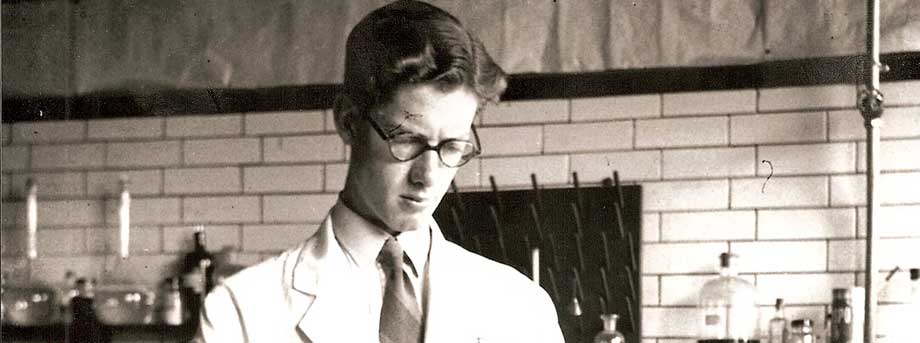DNA – the Nottingham strand
September 29th, 2010

The work of the man who helped to pave the way to the discovery of the structure of DNA has been remembered by the University.
Dr JM (Michael) Creeth graduated in chemistry from University College Nottingham in 1944. His work was celebrated at last month’s Analytical Ultracentrifugation Conference, which took place in the city. Dr Creeth played a key part in the race to identify the structure of the ‘code of life’ in his Nottingham lab — a little-known chapter in the story that ended with the discovery of the double helix structure of DNA, which earned James Watson and Francis Crick their Nobel Prize.
Dr Creeth died in January this year at the age of 85.
Following his degree, Dr Creeth embarked on his PhD in what was then the University’s Department of Chemistry, supervised by DO Jordan and JM Gulland. Using an excellent sample of DNA obtained by fellow student Cedric Threlfall, Dr Creeth eventually came to the important conclusion that the bases of DNA were linked by hydrogen bonds.
Research continued, but by 1947 the research team that Dr Creeth was a part of had begun to disperse. Dr Creeth himself followed his professor to Adelaide University, ending his academic interest in DNA structure.
But the papers on hydrogen bonds were later read by what Watson and Crick in Cambridge, giving them an essential clue to the structure of DNA — a discovery that still sits at the heart of modern medical research.
Though Dr Creeth accepted that the Nottingham team didn’t have the experience in crystallography that proved vital to the final discovery of the structure of DNA, he did admit to having the occasional ‘what if?’ moment.
“Of course I was impressed by Watson and Crick had done,” he said. “However, I must admit to a lingering thought of ‘why didn’t we think of that?’, although practically speaking there were many reasons why our research couldn’t have taken us to that conclusion.”
Steve Harding, Professor of Physical Biochemistry at the University, was a Research Fellow in Dr Creeth’s laboratory.
“The University is very proud of Mike’s achievements,” said Prof Harding. “Mike Creeth was a true gentlemen and meticulous towards his science, an approach which was passed down to all those privileged to have been trained by him.”
Leave a Reply
Other News

Need news? See you on SharePoint
After 14 years of service, Campus News is being retired as the university’s staff news platform. […]

Roads and car parks closed for refurbishing work
As part of ongoing road improvements at the university, works will be taking place to resurface […]

